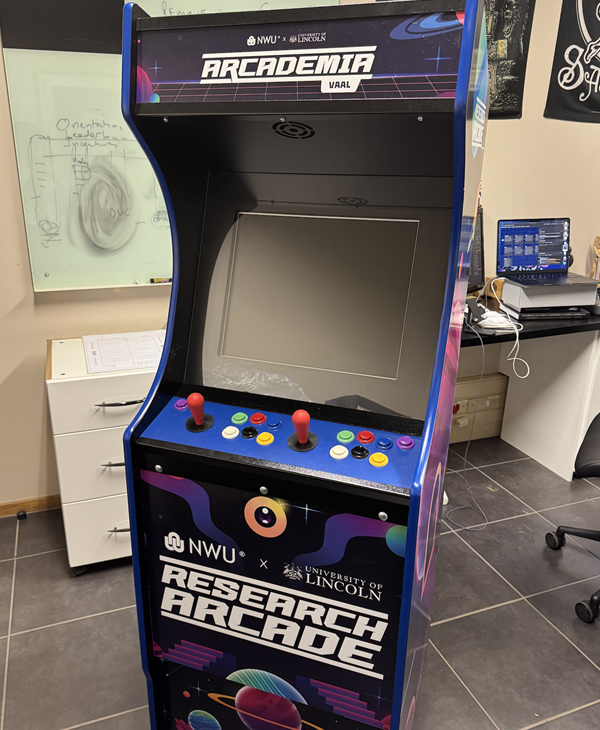In an exciting move that promises to reshape how we think about education, the North-West University (NWU) has joined hands with the University of Lincoln in the UK to bring Arcademia, a dynamic, game-based learning initiative, to South Africa.
This collaboration stems from a formal memorandum of understanding (MoU) signed between the two institutions in November 2023. At the heart of this partnership lies a shared belief: that learning can be innovative, hands-on and even ... fun.
Born at the University of Lincoln in 2018 as the Research Arcade, Arcademia began as a simple idea to let students create digital games and share them with others. But it quickly became something more. Today, it is a fully fledged platform where students and staff co-design original games, showcased on custom-built arcade machines across the Lincoln campus.
“By 2025, Arcademia has evolved into a vibrant digital ecosystem with multiple arcade cabinets, a desktop launcher and a growing library of student-made games built on platforms ranging from WebGL to native desktop frameworks. It is playful, yes – but it is also powerful. A tool for engagement, creativity, and real-world learning,” says Dr Lance Bunt, senior lecturer in the School of Computer Science and Information Systems at the Vanderbijlpark Campus.
Now, the NWU is gearing up to bring Arcademia to life on South African soil. Plans are in motion to install arcade cabinets across all three NWU campuses, creating exciting new spaces where students can learn, interact and experiment across disciplines.
Professor Estelle Taylor, director of the School of Computer Science and Information Systems (SCSIS) explains, “Arcademia at the NWU is about more than just games. It is about access, opportunity and using technology to break down barriers. Inspired by the success of a similar initiative in Lincoln, the NWU aims to use these installations to foster local game development, host game jams, and create opportunities for underprivileged young people to engage with digital technologies in a fun and meaningful way.”
At its core, this collaboration is a celebration of what happens when education, creativity, and technology come together. Arcademia is not just a project – it is a shared commitment between the NWU and the University of Lincoln to rethink what learning can be.
“It also aligns perfectly with the NWU’s broader goals of promoting student mobility, academic exchange and innovation in sustainable, tech-driven education,” says Dr William van Blerk, senior lecturer and subject chair at the School of Computer Science and Information Systems on the Vanderbijlpark Campus.
Through Arcademia, the two institutions are quite literally building a bridge – between campuses, countries, and communities. As the NWU prepares to launch its first Arcademia
cabinets, excitement is building. Students and staff alike are looking forward to a new kind of learning space – one where curiosity, collaboration and creativity take centre stage.
With this partnership, the NWU and the University of Lincoln are not just reimagining education. They are making it more inclusive, more engaging, and a whole lot more interactive.
This initiative would not have been possible without the support of the Centre for Teaching and Learning (CTL) and the University Capacity Development Grant (UCDG) funded International Hybrid Teaching Mobility project, which is dedicated to provide a platform for academics as university teachers to create international teaching partnerships for teaching development. Dr Marieta Jansen van Vuuren, Project Leader for the International Hybrid Teaching Mobility collaborations, explains: “The CTL supports and facilitates internationalisation activities through a professional development strategy with a focus on internationalisation that can create global opportunities to develop a future-ready university teacher who can guide and facilitate learning to prepare future-ready graduates. Collaborations such as Arcademia create an atmosphere of intellectual excitement, through the promotion of scholarly work on teaching and learning to capture and foster reflective practice and innovation that shapes global awareness and intercultural collaboration for both university teachers and students alike.”

